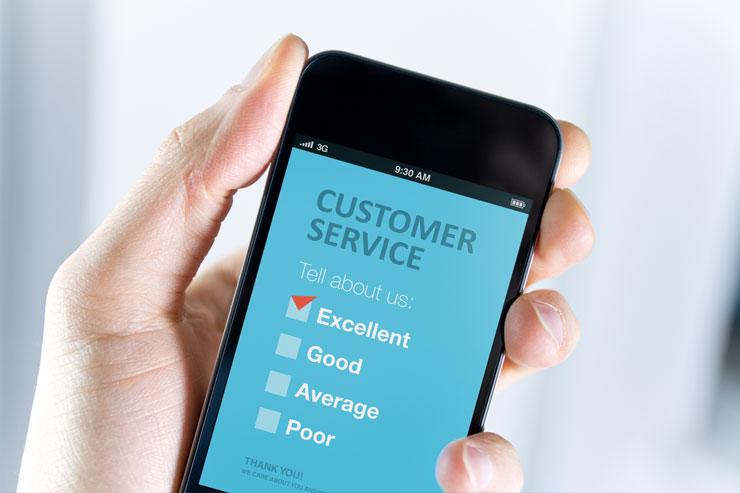There’s no question that today’s consumers are smarter and better informed. They have access to the Internet for everything. Online reviews from friends and family confirm whether or not a product is worthy of your attention.
Studies show that nearly 9 in 10 consumers read online reviews to determine the quality of a local business or product, and almost 4 in 10 do it on a regular basis.1 This trend is predicted to grow.
But, as consumers, are we more rational? Evidence suggests that this is more myth than fact.
Consider this: even with all the shopper savviness, the vast majority of purchase decisions are still made subconsciously, according to behavioural psychologists. We think our buying decisions are made as the result of a smart, rational analysis, when in reality, we are greatly influenced by emotion. In fact, it’s been found that we are incapable of making decisions if we lack the ability to connect with our emotions.2
As business owners, what can we do to better connect the emotional side of our story to our Brand?
One solution: appeal to both sides of your customers’ brains—the rational side that seeks more value and the emotional side that wants to be recognized. “Consumers’ beliefs about a brand’s personality are based primarily on their interpretation of its “story” – the narrative expressed in communication, packaging and other marketing elements,” as stated in “The Myth of the Rational Mind”3 by Peter Noel Murray, Ph.D.
To be successful, a national brand needs to create an emotional connection with the consumer. If you rely only on features and benefits it’s just a list of attributes with no story line.
The influential role of emotion in consumer behavior is well documented, states Peter Noel Murray, Ph.D:
- fMRI neuro-imagery shows that when evaluating brands, consumers primarily use emotions (personal feelings and experiences) rather than information (brand attributes, features, and facts). 2
- Studies show that positive emotions toward a brand have far greater influence on consumer loyalty than trust and other judgments which are based on a brand’s attributes.2

Building emotion into your story helps you transform satisfied customers into brand advocates. With the increased power of word of mouth through social networking, customer advocates are an extremely valuable piece of the marketing puzzle. That’s because, according to Nielsen, 92% of consumers say they trust recommendations from friends and family more than anything else.4
Here are some thoughts on converting your satisfied customers into advocates:
- Be helpful – Become a trusted advisor by passing on relevant information during every interaction, whether it’s an article you’ve seen or a building tip. Focus on providing service over just selling product.
- Make a personal connection – Remember the power of saying “Thank you.” We all want to feel recognized. You could consider hand-written notes, a rarity in today’s wired world, and so all the more impactful. It’s the little things; for example, address your customers by name.
- Learn to listen; listen to learn – It has been said that we too often listen to respond and not to understand. Learn about their problems and needs.
- Provide excellent customer service – Customers remember (and share) great, proactive customer experiences. Pay attention to any concerns or complaints, whether made in person, by phone or online. Be accessible, upbeat and responsive. Excelling in customer service is the name of the game here—customers don’t brag about average service.
- Empower employees – Your employees are often the first line in connecting with customers. Let them know you have their backs and support their careers, and they will put on the well-mannered, positive and capable face that customers want to see.
- Offer incentives – Creating customer loyalty can create long-term gains from returning customers. Remember, the more often a customer returns to your establishment the more opportunity you have to build your brand.
- Ask customers to share – You don’t need to wait for it to happen, ask your customers to review you online or to share their testimonials. If you’ve been doing everything well, they’ll likely be happy to give you the nod you deserve. We all love bragging about great service we’ve received.
Having educated, smart customers as frontline advocates supporting your brand can quickly attract more of today’s highly-informed consumers – who will, in turn, attract more customers. It’s the snowball effect.
Think about this: why do you continually support the same baker, butcher, dry cleaner, car mechanic or favourite retailer? You’re a savvy consumer. Why do you give these people your business? What’s their story, their brand promise, that keeps you coming back? Make a list of five things your favourite businesses do – beyond simply product pricing and availability – that keep you coming back, and look at how you might implement them in your own business.
References
- http://searchengineland.com/88-consumers-trust-online-reviews-much-personal-recommendations-195803
- https://www.psychologytoday.com/blog/inside-the-consumer-mind/201302/how-emotions-influence-what-we-buy
- https://www.psychologytoday.com/blog/inside-the-consumer-mind/201603/the-myth-the-rational-consumer
- http://www.nielsen.com/ca/en/insights/news/2012/consumer-trust-in-online-social-and-mobile-advertising-grows.html
